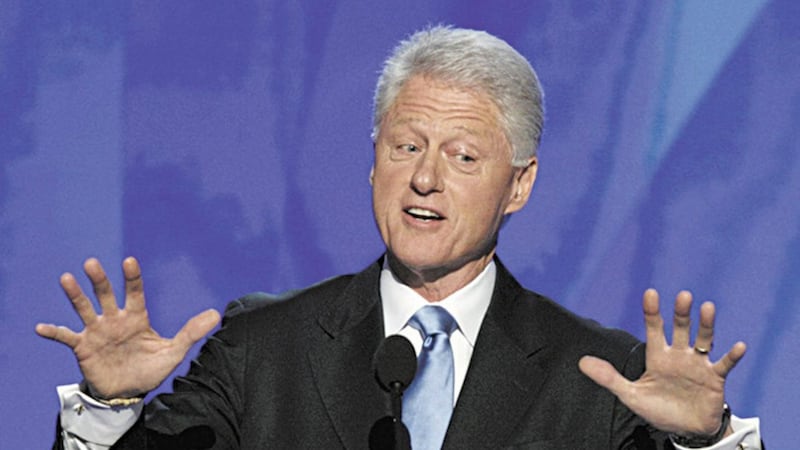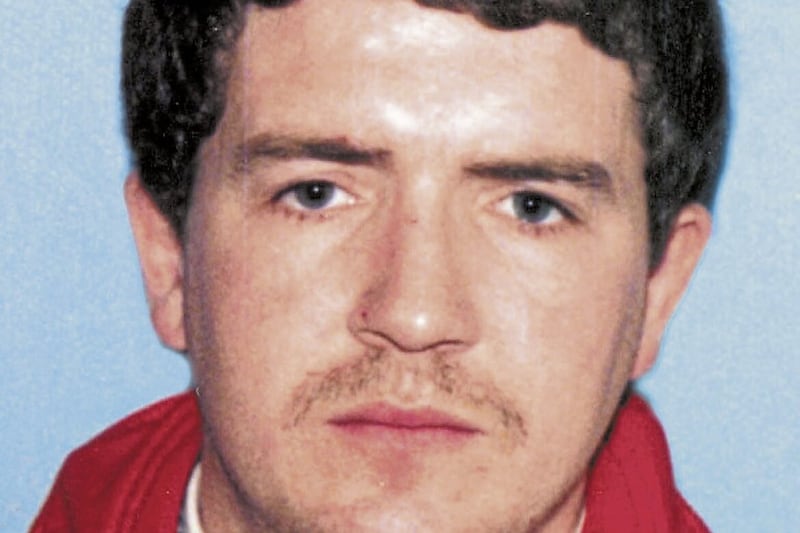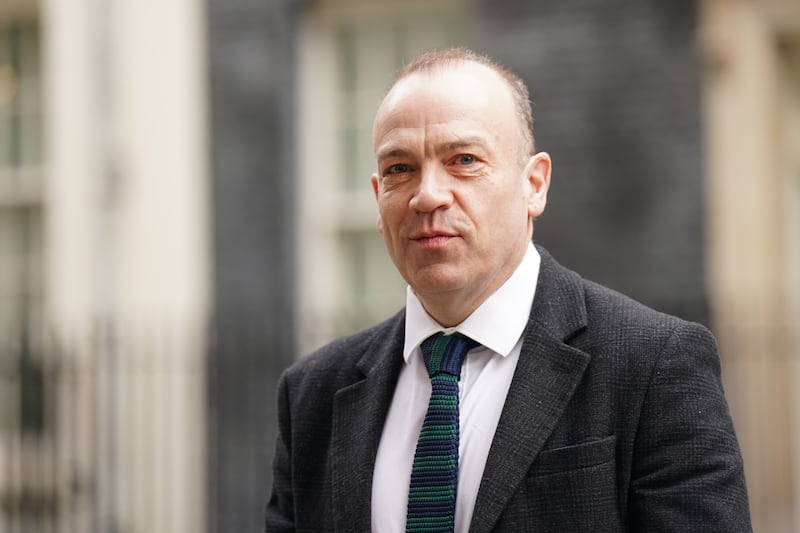US President Bill Clinton was "more forthcoming" to nationalists than the Northern Ireland Office wanted, declassified files show.
Mr Clinton's election in 1992 caused some concern to Secretary of State Sir Patrick Mayhew and the NIO.
An official told Sir Patrick in October 1992 that the president "has been more forthcoming to the Irish-American nationalist constituency than we would have ideally wished".
He warned it "would be prudent to anticipate that we will face at least some difficulty with a Clinton administration".
Mr Clinton had openly said he would appoint a peace envoy to Northern Ireland and backed the MacBride principles which set out a code of conduct for US companies doing business in Northern Ireland.
The NIO official reported that Sir Robin Renwick, the British Ambassador in Washington, had impressed on President Clinton’s foreign policy adviser Nancy Soderberg the likely political effect in Britain "if Clinton made reference to wanton abuses by the security forces without setting it in the context of the terrorist campaigns of the IRA and Protestant paramilitaries".
The British embassy in Washington had made clear that "NI was part of the UK", the note read, and solutions to its problems could not be imposed from outside.
In January 1993, Sir Robin urged the Clinton administration "not to pursue the idea of a peace envoy".
In the same month, the head of the NIO Sir John Chilcot, expressed concerns that President Clinton's proposed envoy "might be replaced by the appointment of a high-profile US ambassador in Dublin with some kind of remit to engage in North-South issues".
In response to Chilcot’s memo, Sir Patrick wrote that he did not feel the British government could object to a "high-powered ambassador in Dublin" having a legitimate interest in a peace process involving Dublin, Belfast and London.
In 1995, Senator George Mitchell was appointed as an economic envoy to Ireland and later chaired the multi-party talks which resulted in the 1998 Good Friday Agreement.
Read More
- UVF 'had secret talks with IRA which discussed federal Ireland'
- John Hume concerned by release of republican prisoners from Portlaoise after IRA ceasefire
Read More
- Gerry Adams was 'dispensable' and 'no Mandela', Ken Maginnis told Bill Clinton adviser
- Unionists 'felt nationalists had benefited from IRA violence'
- Withdrawal of funding from Irish language group 'sparked huge row'
Read More
- Row over planned restoration of Co Armagh birthplace of Orange Order
- Orange Order berated Sir Patrick Mayhew over 'cannibals' remark
- Ian Paisley Jnr 'wanted Stormont government which could negotiate with Republic'
Read More
- Mary Robinson's 1993 meeting with Gerry Adams 'angered British government'
- British government 'repeatedly tried to block Gerry Adams's US visa in 1994'
- Records reveal British criticism of Republic's response to Gibraltar deaths
Read More
- Thatcher 'accused Irish government of doing nothing' over suspected IRA priest
- Irish government queried bulk postal discount for Sinn Féin over IRA funding fears
- MPs demanded date to withdraw from Ireland after murders of British soldiers
Read More
- Secretary of state Tom King walked out of meeting after row with SDLP over devolution
- Margaret Thatcher said Garda was 'not a highly professional police force'
- Farm security gates at Irish border sparked allegations of discrimination against Catholics







